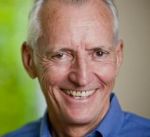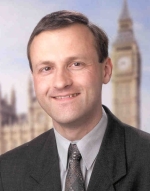
Allan Barsema
A former homeless alcoholic and a housekeeper are among this year’s winners of The Purpose Prize, a $100,000 award for entrepreneurs over the age of 60.
The five winners, announced today, were selected by a panel of judges chaired by Sherry Lansing, former CEO of Paramount Pictures and the first woman to head a Hollywood studio.

Sherry Lansing
Among them is Allan Barsema, whose alcoholism cost him his marriage, his home and his job, and who lived for a period from a trailer pulled behind his car. With help from his parents, he managed to stop drinking and to re-establish himself in work; and when, 10 years later, a homeless man barged into his construction company, he decided to set up a room for homeless people in his offices. At the end of that year, 2000, his work with the homeless had become so consuming that he devoted himself full-time to his centre, Carpenter’s Place. He settles 300 long-term homeless people in accommodation each year and has set up an innovative online system to coordinate services for the homeless, Community Collaboration, which has been adopted by 140 agencies in five states.

Margaret Gordon
Margaret Gordon started reading environmental magazines in the house she cleaned and began to link pollution from the nearby container port to the one in five children aged between one and five in her home town of West Oakland who were being rushed to the emergency room with asthma. Her analysis and campaigning has reduced diesel fumes and pollution from West Oakland’s port and she has been appointed by the Mayor to monitor toxic emissions.

Barry Childs
Barry Childs is a former corporate executive who has set up a project to provide care and schooling for children, mainly orphaned by AIDS, in Tanzania, which has ended up helping whole communities.

Inez Killingsworth
Inez Killingsworth worked for the Cleveland Board of Education before she started fighting banks that had mis-sold mortgages and were turfing people out of their homes, demonstrating to them that they were wrecking whole neighbourhoods as well as individual lives. By fighting foreclosures, she has helped more than 10,000 families keep their homes. She has appeared in front of Congress and become a national spokesperson against shady mortgage practices, and a campaigner against the hefty penalties imposed by banks for missed mortgage payments.
Judith B Van Ginkel is a professor of paediatrics who, at the age of 60, created a home visits programme for first-time mothers at risk, half of whom were clinically depressed, and two-thirds of whom had witnessed violence or been victims of violence. Mothers in the programme are visited from the time when they first discover they are pregnant to when their children are aged three and can access help with health concerns, literacy, parenting and education.

Judith B Van Ginkel
So, five people with very different backgrounds, but a common desire to achieve something for others in the later part of their lives. You can see short films about all the $100,000 winners here; and there is more information, including about the five more $50,000 winners here. Oh, and please, Europe needs a Purpose Prize, too.



 Something enormous is happening. Two enormous things, in fact, and in time they may find a way to work together. That was the conclusion of this afternoon, which I spent in a very interesting discussion with people in cities all over the world, thanks (again) to
Something enormous is happening. Two enormous things, in fact, and in time they may find a way to work together. That was the conclusion of this afternoon, which I spent in a very interesting discussion with people in cities all over the world, thanks (again) to 


 Excellent news: the splendid
Excellent news: the splendid 
 Wading through the new
Wading through the new  Older people are to be recruited to mentor troubled teenagers and help them get back into education, training or work under a new initiative launched today at the House of Lords. The idea is credited to Lord Freud, the former Financial Times journalist, banker and New Labour advisor, now Conservative peer and Minister for Welfare Reform, whose family charity will part fund it. Under a pilot scheme, grandmentors will be recruited by
Older people are to be recruited to mentor troubled teenagers and help them get back into education, training or work under a new initiative launched today at the House of Lords. The idea is credited to Lord Freud, the former Financial Times journalist, banker and New Labour advisor, now Conservative peer and Minister for Welfare Reform, whose family charity will part fund it. Under a pilot scheme, grandmentors will be recruited by